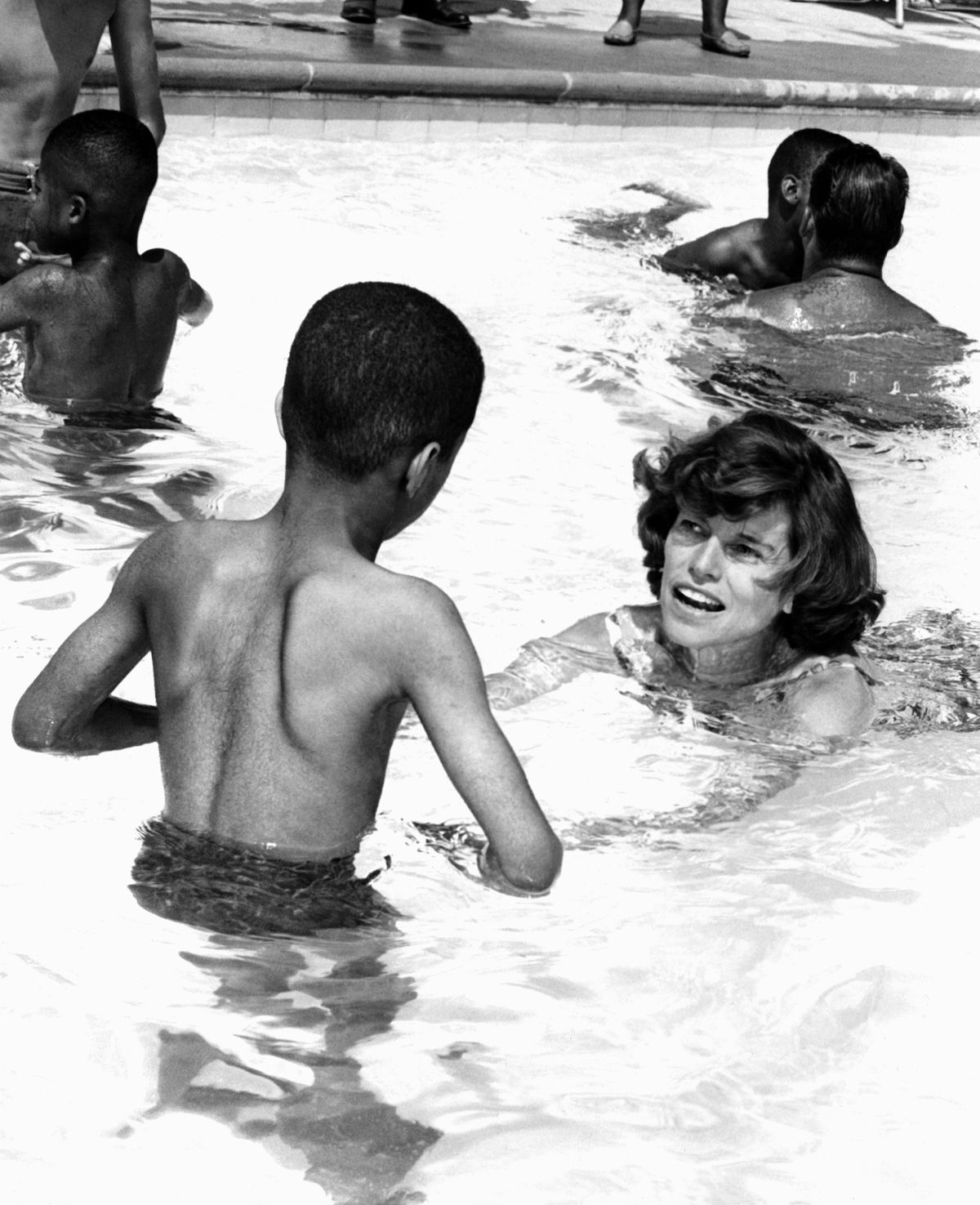Shriver opened world for mentally disabled
Dead at 88, JFK’s sister started Special Olympics

Women in mid-20th century America were not yet welcome on the grand political stage, but Eunice Kennedy Shriver – a daughter of uncommon privilege who defined herself as a mother above all – didn’t much care. As the younger sister of President John F. Kennedy and with a family foundation behind her, she became an unstoppable advocate for the mentally disabled.
In the early 1960s, Shriver pushed mental retardation onto the national agenda. Her brother, Robert, who was JFK’s attorney general, once joked: “President Kennedy used to tell me, ‘Let’s give Eunice whatever she wants so I can get on with the business of government.’ ”
Shriver’s advocacy for those with special needs would never end once it took root in sports. In 1968, she founded the Special Olympics, the athletic competition for the mentally disabled. During the first games, Chicago Mayor Richard J. Daley told her: “Eunice, the world will never be the same.”
Shriver, who was also the sister of Sen. Edward M. Kennedy and the mother of California first lady Maria Shriver, died Tuesday at Cape Cod Hospital in Hyannis, Mass., her family said. She was 88.
In a speech last fall at the Women’s Conference in Long Beach, Calif., Maria Shriver said her mother had had several strokes.
“Eunice was the light of our family,” California Gov. Arnold Schwarzenegger said of his mother-in-law in a statement. “She meant so much, not only to us, but to our country and to the world. She was a pioneer who worked tirelessly for social and scientific advances that have changed the lives of millions of developmentally disabled people all over the world.”
Shriver’s unflagging support for the mentally disabled, who for generations were hidden in shame and secrecy in America, has been called the Kennedy family’s most important campaign and was considered a precursor to the larger disability rights movement.
“When the full judgment of the Kennedy legacy is made – including JFK’s Peace Corps and Alliance for Progress, Robert Kennedy’s passion for civil rights and Ted Kennedy’s efforts on health care, workplace reform and refugees – the changes wrought by Eunice Shriver may well be the most consequential,” U.S. News & World Report magazine said in a 1993 cover story.
The founding of the Special Olympics went a long way toward erasing long-held stigmas that the Kennedy family knew well because Eunice had a sister who was mentally disabled. And the federal money that was unleashed resulted in research breakthroughs and a proliferation of educational programs.
President Kennedy enabled Shriver to help create both the National Institute on Child Health and Human Development and the President’s Committee on Mental Retardation.
More than 70 percent of the presidential committee’s 112 recommendations were eventually implemented, according to the U.S. News & World Report story on Shriver and the Kennedy family’s largely overlooked accomplishment. In the mid-1960s, more than $400 million a year in federal funds was appropriated to benefit the mentally disabled, which included hospital-improvement programs. More than twice that amount was being spent each year by states, local governments and private organizations, said a 1967 report by the president’s committee.
The advancements marked a “historic emergence of mental retardation … from isolation and public indifference,” the report said.
On a more personal level, Shriver pushed for more than a year to reveal the closely guarded family secret that she was certain would dramatically help alter public opinion about the disabled. She wanted to disclose that the president’s sister Rosemary was mentally disabled.
In 1962, Shriver told the world about Rosemary’s condition in a Saturday Evening Post article. The headline read: “Hope for Retarded Children.”
Influenced by Rosemary’s ability at sports and her own inclination toward athletics, Shriver was drawn to the idea of physical activity as a way to benefit the mentally disabled.
“The world was full of people saying what mentally retarded people could not do,” her husband of 56 years, former Peace Corps Director Sargent Shriver, recalled some years ago. “She just didn’t believe that there were human beings who were as useless or hopeless, or whatever the right word might be, as the mentally retarded were thought to be 40 years ago.”
In 1984, Eunice Shriver received the Presidential Medal of Freedom, the nation’s highest civilian honor. Her many accolades included the French Legion of Honor, the Lasker Award for public service and the Theodore Roosevelt Award of the National Collegiate Athletic Association.
Shriver, the mother of four sons and a daughter, thoroughly believed “in motherhood as the nourishment of life,” once writing that “it is the most wonderful, satisfying thing we can do.”
Son Mark was a member of the Maryland Legislature. Timothy has chaired the Special Olympics for more than a dozen years. Bobby is a Santa Monica city councilman and film producer. Anthony heads Best Buddies, which pairs college students with the mentally challenged. Maria, a former network news reporter, is also active in the Special Olympics.
Besides her children, Shriver is survived by her husband, 93, who has Alzheimer’s disease; brother Edward, who was diagnosed with a malignant brain tumor in 2008; sister Jean Kennedy Smith; and 19 grandchildren.
Sen. Kennedy joined other members of the Kennedy and Shriver families who gathered at Shriver’s home for a private service Tuesday evening.